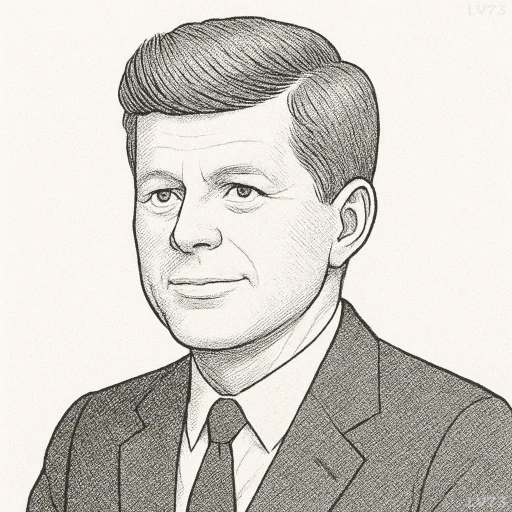“There is always inequality in life. Some men are killed in a war and some men are wounded and some men never leave the country. Life is unfair.”

- May 29, 1917 – November 22, 1963
- American
- Politician
table of contents
Quote
“There is always inequality in life. Some men are killed in a war and some men are wounded and some men never leave the country. Life is unfair.”
Explanation
In this statement, John F. Kennedy confronts the inherent inequality and unfairness that exist in life. He uses the example of war to illustrate how people’s experiences, and by extension their fates, can be drastically different even under similar circumstances. While some may sacrifice their lives, others may suffer lasting physical or psychological wounds, and still others may be spared from the horrors of conflict altogether. Kennedy acknowledges that life’s randomness—in terms of opportunity, outcome, and even survival—creates inequalities that are beyond our control. This stark recognition of life’s unpredictability and injustice doesn’t necessarily suggest resignation but rather an acceptance of life’s complexities and the need to confront them with realism.
Kennedy’s statement is rooted in the context of the Vietnam War, which was a deeply controversial and divisive conflict in which many young Americans were sent to fight, often facing devastating consequences. His words reflect an understanding of the sacrifices made by individuals during times of war and the inequities that arise in situations of national service. He seems to be recognizing the limitations of what can be fair or just in such chaotic and often tragic circumstances, and implicitly calls for a more compassionate approach to the veterans and their families, as well as a more thoughtful consideration of the implications of war and military service.
In the broader context, Kennedy’s recognition of life’s inherent unfairness remains a relevant commentary on societal inequalities that persist today. From economic disparity to social injustice to healthcare access, life often treats people differently based on circumstances outside their control. However, acknowledging inequality doesn’t mean accepting it as unchangeable—it can be a catalyst for action to address disparities and create systems that better serve those who are most vulnerable. Kennedy’s statement reminds us that, while we cannot always eliminate the inherent unfairness of life, we can strive to make the world more just by recognizing inequality where it exists and working to minimize its impact through compassionate leadership, social reforms, and a commitment to human dignity.
Would you like to share your impressions or related stories about this quote in the comments section?

